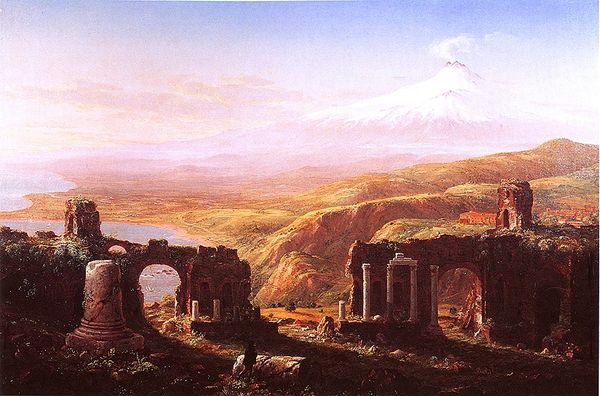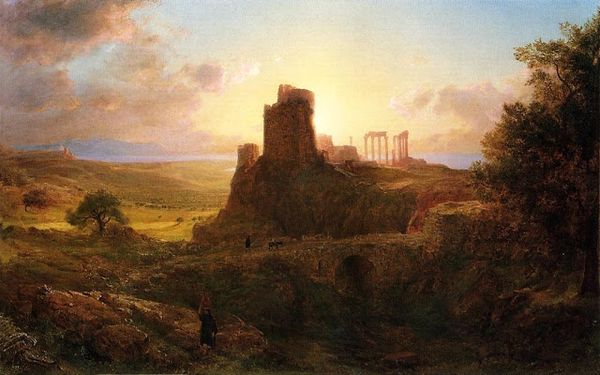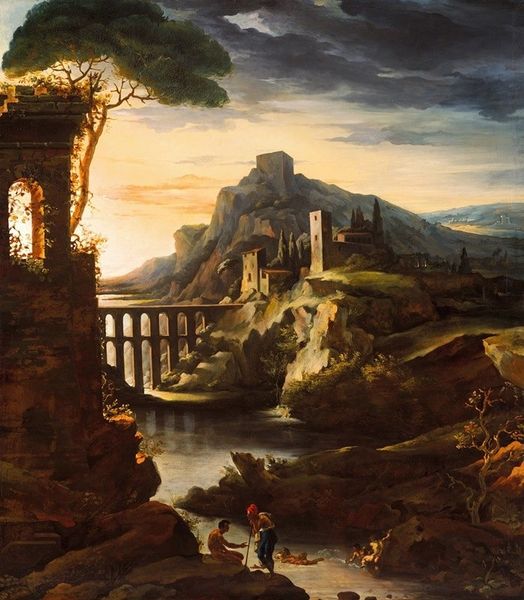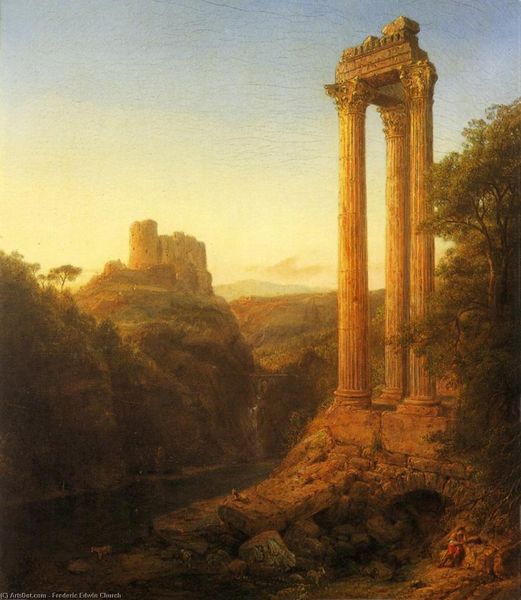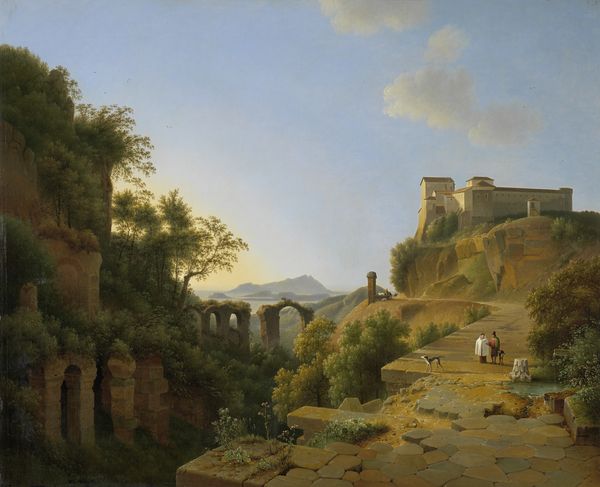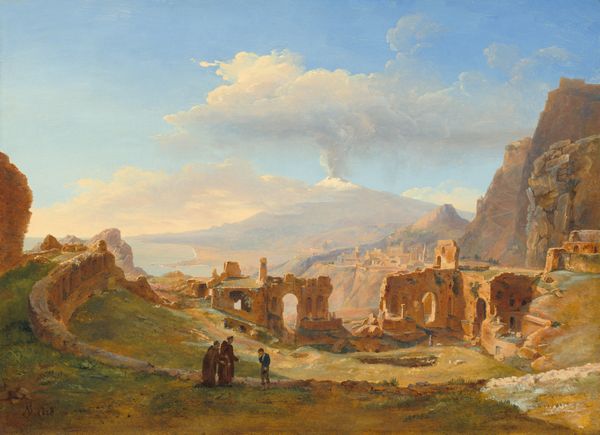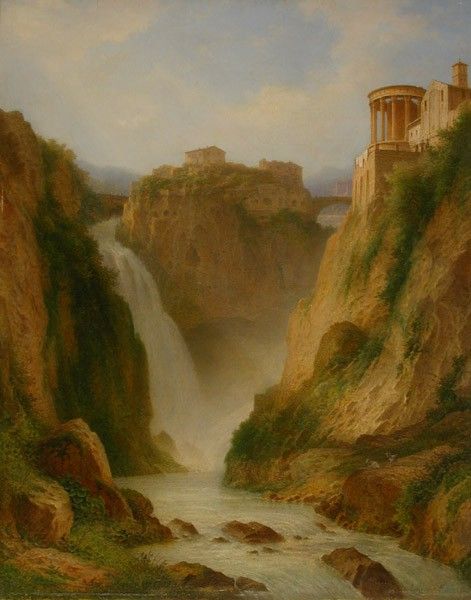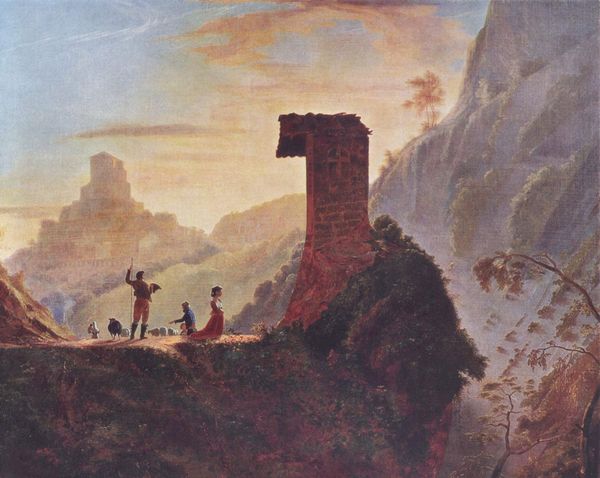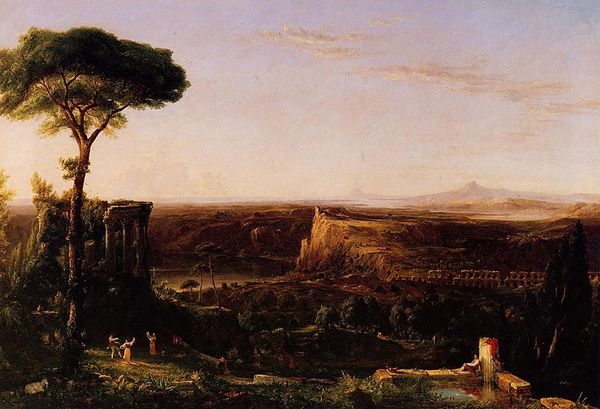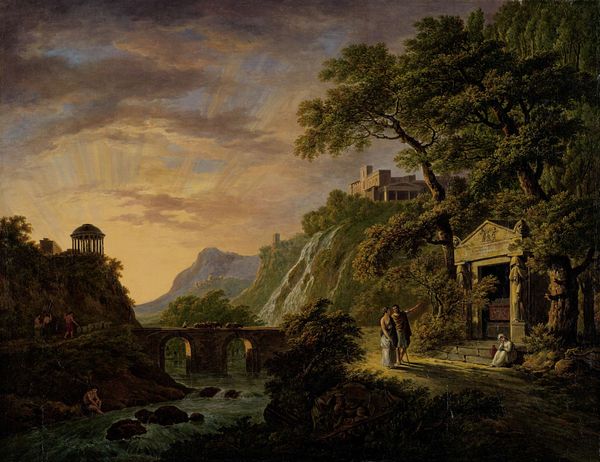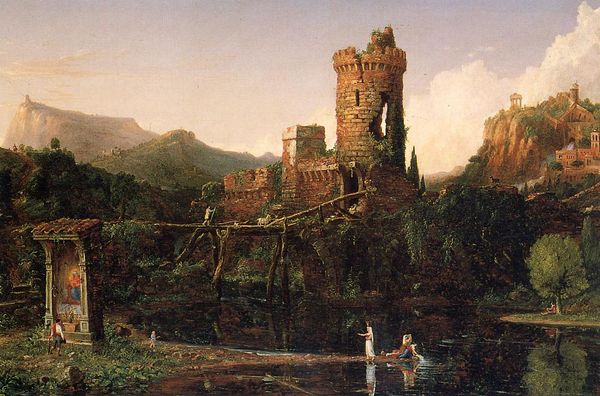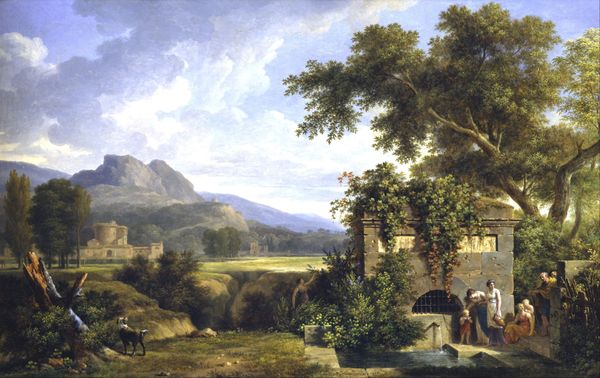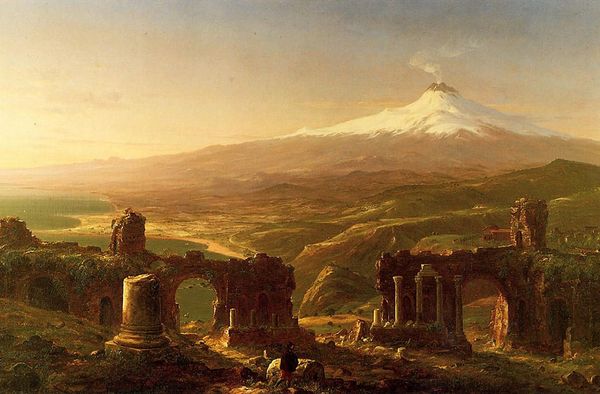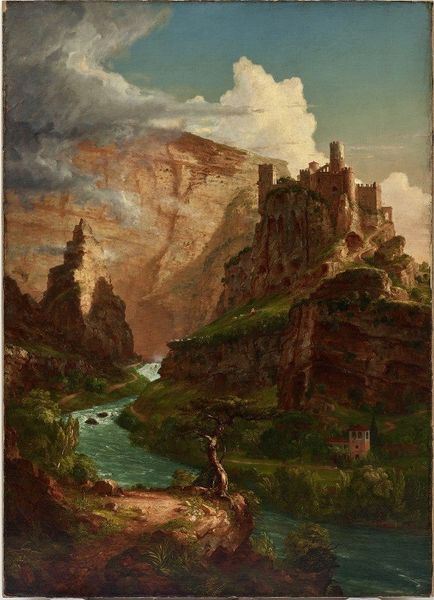
painting, plein-air
#
painting
#
plein-air
#
landscape
#
perspective
#
romanticism
#
cityscape
Copyright: Public domain
Edward Lear created this work, Civita Castellana, using watercolour and gouache. What strikes you first is the composition, structured around the strong horizontal of the aqueduct, its rhythmic arches playing against the wild, asymmetrical landscape. This contrast isn't just visual; it's a dialogue between order and nature, a common theme in romanticism. Lear positions the aqueduct as a bridge between different realms: the cultivated lands and distant town, against the rugged, immediate foreground. Semiotically, the aqueduct stands as a signifier of human progress, a rational structure imposed upon the natural world. However, the crumbling rocks and overgrown foliage hint at the limits of this imposition, suggesting nature's inevitable reclamation. The muted palette and precise detailing invite contemplation, yet the scene's inherent tensions—between decay and durability, control and freedom—resist easy resolution, leaving you to ponder the complex relationship between humanity and its environment.
Comments
No comments
Be the first to comment and join the conversation on the ultimate creative platform.
